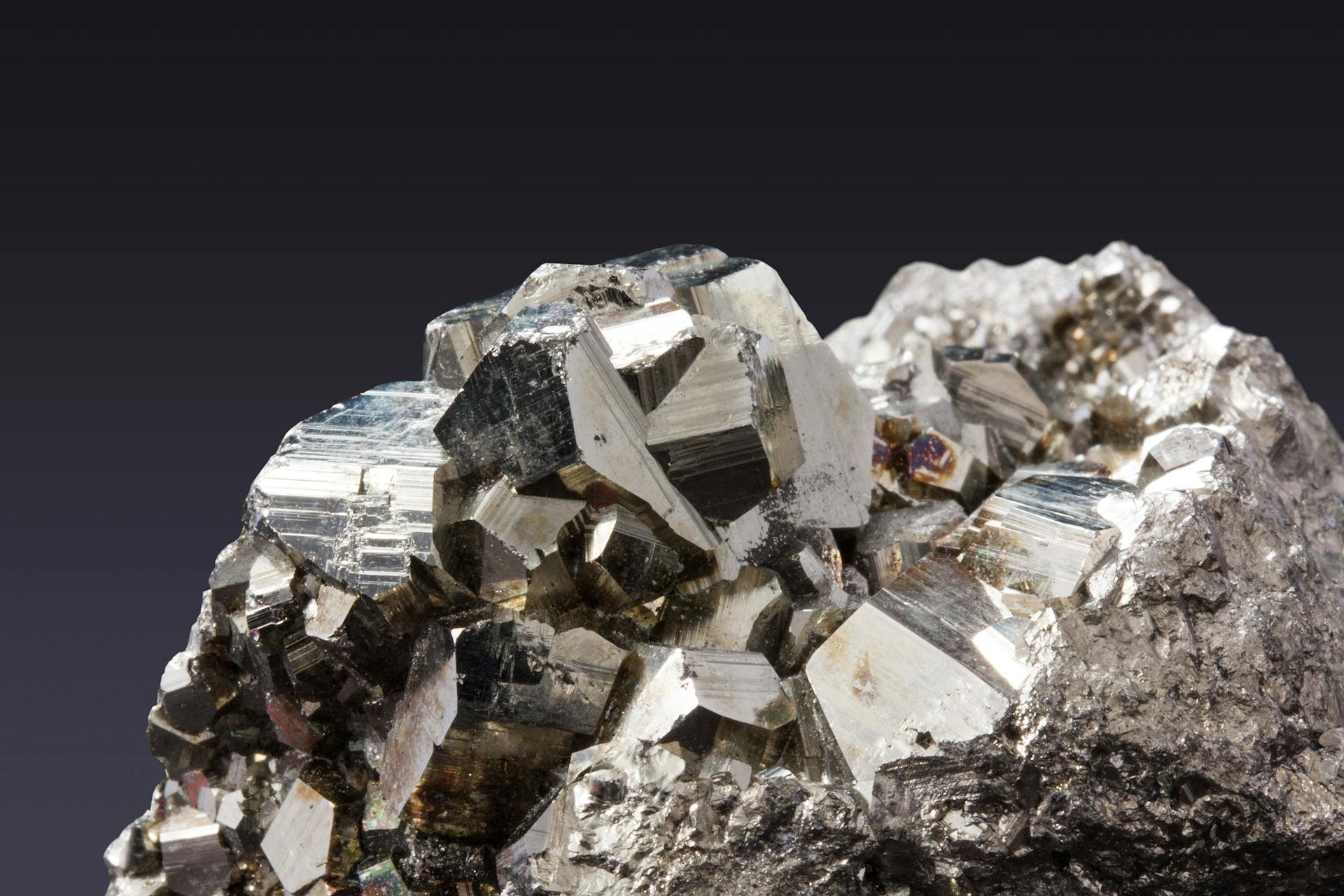
Water is an essential part of our daily lives. We all know the importance of staying hydrated and drinking at least 2 liters of water a day. However, what many people don't realize is that common minerals in water can provide important public health benefits.
Bottled mineral water has become increasingly popular as people become more conscious of their dietary choices. This type of water contains a variety of minerals, including the 10 minerals that are recommended for our daily intake. But did you know that even tap water can contain these important minerals? In this article, I'll provide a quick summary about the common minerals found in drinking water and how they can benefit your health.
It's important to note that while having common minerals in your drinking water is beneficial, excessive mineral levels can be harmful to your health. Understanding the balance between too little and too much intake is crucial for ensuring optimal health. So, let's dive into the world of common minerals and discover how they contribute to a healthy lifestyle.
Exploring the Presence of Common Minerals in Water

Water is essential for our survival and it contains naturally occurring substances that are crucial for our bodies to develop and function properly. These substances are known as medicine minerals, or just minerals, and they promote good health in humans. The National Library of Medicine states that some of the most common minerals found in water include calcium, magnesium, potassium, and sodium.
Although water is not the only source of these minerals, it is an important one. Other sources include cereals, bread, fish, milk, meat, dairy products and fruits. It is important to note that while these minerals are necessary for good health, consuming high amounts can be harmful. Therefore, it is recommended to consume them in moderation through a balanced diet that includes a variety of foods. Understanding the presence of common minerals in water can help us make informed decisions about our overall health and well-being.
1. Two Types of Minerals
There are two primary types of minerals that are essential for human health: macrominerals and trace minerals. Macrominerals are needed in larger amounts by the body and are found in many common foods such as cereals, bread, fish, milk, meat, dairy products, and fruits. Examples of macrominerals for humans include sodium, potassium, sulfur, and magnesium.
Trace minerals, on the other hand, are needed in smaller amounts but are still crucial for good health. These minerals can be found in a variety of foods and can also be obtained through drinking water. Some examples of trace minerals for humans include cobalt, zinc, and manganese. While these minerals may not have a significant impact on taste like other "taste" minerals found in food and drink water (such as iron), they play an essential part in keeping our bodies healthy.
This is the main reason why health professionals encourage people to drink enough water daily since our body consists largely of water making it essential to maintain proper hydration levels. Whether you prefer bottled water or tap water depends on personal preference; however, both contain essential minerals that contribute to overall health. So next time you reach for a glass of water or eat a meal with nutrient-dense foods like fruits or vegetables remember that the specific minerals you consume play a vital role in your overall well-being.
Discover the Best Mineral Waters for a Healthy Boost
The main reason to drink water is to maintain optimal health. While drinking tap water is convenient, it may not always be the best choice. Drinking natural mineral water is a valid choice that offers health benefits. Vichy Catalan is one of the best mineral waters available on the market today.
A 2017 study suggests that drinking mineral water can naturally produce essential minerals that our bodies need to function properly. This means that drinking mineral water regularly could help us avoid taking supplements. Vichy Catalan, for instance, is rich in calcium and magnesium, which are important minerals for everyday life.
Drinking mineral water is a good thing, but consuming bad products can harm your health. That's why it's important to choose high-quality natural mineral water like Vichy Catalan. Not only does it taste great, but it also provides essential minerals that our bodies need to function properly. So next time you reach for a glass of water, consider making the switch to Vichy Catalan for a healthy boost!
Unlocking the Power of Minerals in Water for Better Health
Minerals found in water are vital to our health and well-being. There are a few common types of minerals found in drinking water, such as calcium, magnesium, and potassium. These minerals play an important role in keeping our body functioning properly.
Drinking mineral water can make a positive difference in how we feel daily. With the right balance of these essential minerals, we can feel confident that we are getting the nutrients needed to maintain good health. Filtered water is also a great source of health mineral water, as it removes impurities while retaining beneficial minerals.
Incorporating more mineral water into your diet can help you achieve optimal health. Whether you're looking to boost your immune system or improve your digestion, drinking mineral water may be just what you need. So next time you reach for a glass of water, consider drinking mineral-rich filtered water instead and start unlocking the power of these essential minerals for better health!
Discover the Different Mineral Levels in Your Drinking Water

It's important to understand the mineral levels in your drinking water as it can affect your overall health and well-being. As mentioned earlier, our bodies require certain minerals for proper functioning and a balanced diet. However, an increased level of certain minerals compared to others can also have negative effects on our health.
Common drinking water sources include tap water, mineral water, and regular bottled water. Tap water typically contains a variety of minerals such as calcium and magnesium, while mineral water has higher levels of calcium, magnesium, and sometimes other minerals like potassium. Regular bottled water may have lower levels of minerals compared to tap or mineral water. It's important to be aware of the mineral intake from your drinking water and choose the best option for your needs.
Potential Health Benefits of Minerals in Water
Water is an essential component of life, and it is crucial that we consume enough to stay hydrated. However, not all water is created equal. Some water contains minerals that can provide positive health impacts. For example, minerals like calcium and magnesium can help regulate body temperature and improve circulation, which are both important for maintaining good health.
Another benefit of consuming water with minerals is that it can help maintain good blood pressure. Potable water with a balanced amount of minerals can assist in regulating nerve function, which helps the body maintain healthy blood pressure levels. This is particularly important because high blood pressure is a leading risk factor for cardiovascular disease.
Overall, drinking water with minerals can have numerous health benefits. In addition to those mentioned above, it can also improve bone density and protect against certain types of cancer. So next time you're reaching for a glass of water, consider choosing one with natural mineral content to maximize your health benefits.
Frequently Asked Questions
Does water have minerals naturally?
Yes, water naturally contains minerals such as calcium, magnesium, and potassium which are important for maintaining good health.
What are the essential minerals in drinking water?
The essential minerals found in drinking water include calcium, magnesium, and potassium, which are important for maintaining healthy bones and muscles, regulating blood pressure, and supporting proper nerve function.
What are causes of hardness in water?
Hardness in water is caused by the presence of minerals such as calcium and magnesium that dissolve into the water as it passes through rock formations. These minerals can cause scale buildup in pipes and appliances, and can also make soap less effective.
What does hardness of water indicate?
The hardness of water indicates the amount of dissolved minerals, such as calcium and magnesium, in the water. These minerals can cause issues with plumbing and a buildup of soap scum.
How do you calculate the hardness of water?
The hardness of water is calculated by measuring the concentration of calcium and magnesium ions in the water sample, which can be done through various methods such as titration or using a test strip.
Featured Images: pexels.com


